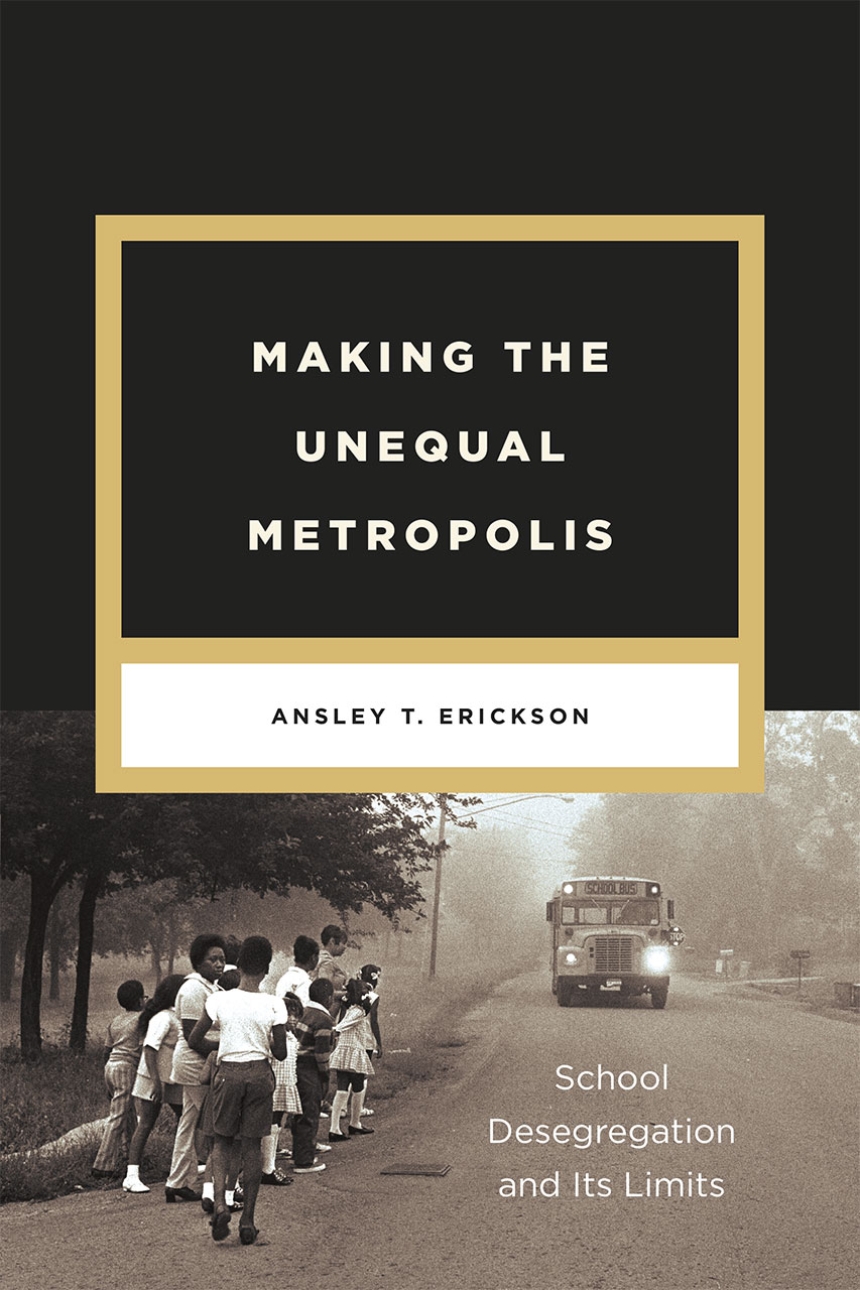Making the Unequal Metropolis
School Desegregation and Its Limits
In a radically unequal United States, schools are often key sites in which injustice grows. Ansley T. Erickson’s Making the Unequal Metropolis presents a broad, detailed, and damning argument about the inextricable interrelatedness of school policies and the persistence of metropolitan-scale inequality. While many accounts of education in urban and metropolitan contexts describe schools as the victims of forces beyond their control, Erickson shows the many ways that schools have been intertwined with these forces and have in fact—via land-use decisions, curricula, and other tools—helped sustain inequality.
Taking Nashville as her focus, Erickson uncovers the hidden policy choices that have until now been missing from popular and legal narratives of inequality. In her account, inequality emerges not only from individual racism and white communities’ resistance to desegregation, but as the result of long-standing linkages between schooling, property markets, labor markets, and the pursuit of economic growth. By making visible the full scope of the forces invested in and reinforcing inequality, Erickson reveals the complex history of, and broad culpability for, ongoing struggles in our schools.
Taking Nashville as her focus, Erickson uncovers the hidden policy choices that have until now been missing from popular and legal narratives of inequality. In her account, inequality emerges not only from individual racism and white communities’ resistance to desegregation, but as the result of long-standing linkages between schooling, property markets, labor markets, and the pursuit of economic growth. By making visible the full scope of the forces invested in and reinforcing inequality, Erickson reveals the complex history of, and broad culpability for, ongoing struggles in our schools.
416 pages | 40 halftones, 2 line drawings, 4 tables | 6 x 9 | © 2016
Historical Studies of Urban America
Geography: Cultural and Historical Geography
History: American History, Urban History
Sociology: Race, Ethnic, and Minority Relations
Reviews
Table of Contents
List of Illustrations
Acknowledgments
List of Abbreviations
Introduction
Part I: Making Inequality, 1945–1968
1 / Metropolitan Visions of Segregation and Growth
2 / Desegregation from Tokenism to Moderation
3 / The Curricular Organization of Segregated Schooling
4 / The Spatial Organization of Schooling and Urban Renewal
Part II: Remaking Inequality, 1968–1998
5 / The Road to Busing
6 / Busing Resisted and Transformed
7 / Busing Lived and Imagined
8 / Busing Renegotiated
9 / The Long Road to the End of Desegregation
Conclusion
List of Oral History and Interview Participants
Notes
Index
Acknowledgments
List of Abbreviations
Introduction
Part I: Making Inequality, 1945–1968
1 / Metropolitan Visions of Segregation and Growth
2 / Desegregation from Tokenism to Moderation
3 / The Curricular Organization of Segregated Schooling
4 / The Spatial Organization of Schooling and Urban Renewal
Part II: Remaking Inequality, 1968–1998
5 / The Road to Busing
6 / Busing Resisted and Transformed
7 / Busing Lived and Imagined
8 / Busing Renegotiated
9 / The Long Road to the End of Desegregation
Conclusion
List of Oral History and Interview Participants
Notes
Index
Awards
History of Education Society: History of Education Society Outstanding Book Award
Won
